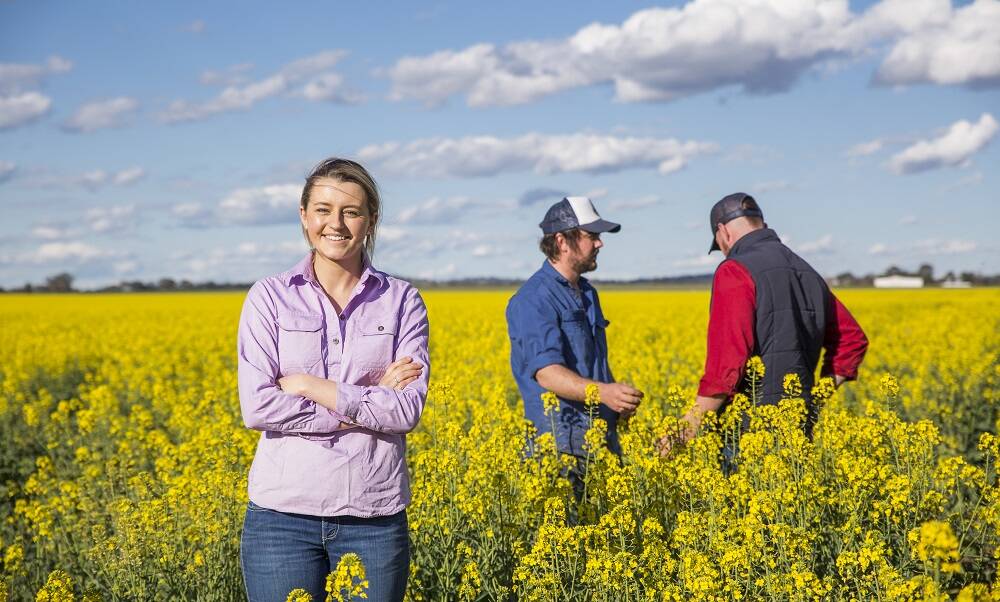We can’t afford to fall behind… Billions of dollars are riding on it

Sponsored by Charles Sturt University.
Farming has always been a salt of the Earth profession but it is also becoming an increasingly big business.
In the 2016-17 financial year, agricultural production was responsible for three per cent of Australia’s GDP, representing a total of $60b. Seventy seven per cent of that was in exports, valuing $44.8b for the economy.
More importantly though, all indications suggest there will be an increased demand on primary industries throughout the coming century.
According to the United Nations, the global population is set to increase by orders of magnitude in the next few decades. If current birth rates continue, there will be 9.7 billion people on the planet by 2050 and 11.8 billion by 2100.
That’s a lot of extra mouths to feed. It is also going to put an increased strain on both resources and the climate. With climate change set to increase the frequency and intensity of droughts, floods, cyclones and bush fires, primary industries will be hit hardest.
If we’re to continue to prosper in the coming century, one thing is certain: we’ll need to find new, innovative and more sustainable ways to do things.
Most cockies will tell you that farming is a life long learning process, which is true, however with year on year increases in research, technology and demand, the need for tertiary educated farmers is becoming insurmountable.
Leading sheep, cattle and wool producers are already adapting their operations to incorporate the latest research and technologies in the fields of DNA testing and genetics, to help take the guess work out of the breeding process.
Similarly, major grain and food producers, are using Precision Ag technologies and research to get the most out of their crops. If family farming operations are to keep up, they’re going to need to start doing the same (but on a much tighter budget).
That’s why Charles Sturt University has invested heavily to put together one of the most comprehensive agricultural studies programs in the country. They offer a wide range of courses which cover just about every facet of the industry.
Though science-based, their Bachelor of Agriculture degree focuses on practical issues facing producers, agribusiness and the environment. Flexible study options also allow students to study at their own pace, gaining credit if they already hold a relevant TAFE qualification.
The university also offers a Bachelor of Agricultural Science, which equips students with a solid scientific foundation for when they begin their careers. It aims to help them develop new ideas, design new technologies, implement new farming practices and devise innovative ways to produce food and fibre. This will make them highly employable.
CSU also have some of the finest agricultural facilities of any Australian university and their teaching style is very hands on. They want their students to walk out of uni and into a career. That’s what makes them so attractive to potential students, Millie Hart says.
She is currently in her second year of an Agricultural and Wine Sciences degree and says that choosing a place to study was a no-brainer.
“I chose CSU Wagga Wagga as it was located in a great area, as well as the fact that I wanted to study agriculture in an area that has some of the most productive land in the state,” she explained.
“Wagga is a great location as the university farm, New South Wales Department of Primary Industries and research facilities are all used as great learning resources, as well as the fact that many different agricultural enterprises can be found within several hours of the university itself.”
“Every day is different in the winery (too),” her class mate Izzie McDonald agreed, “so I never have a chance to lose interest. It’s also very rewarding to be able to see – and taste – the products of all our hard work.”
CSU has a number of scholarship programs and their students are eligible for student and fee help as well. The university also offers Post Graduate and Masters degrees and accepts applicants of all ages, from school leavers through to mature-age students.
There are currently more than 85,000 agricultural businesses across Australia employing more than 1.6m people, each feeding 600 people per day. With challenging times ahead, there is a lot riding future industry getting it right.
Sponsored by Charles Sturt University.


